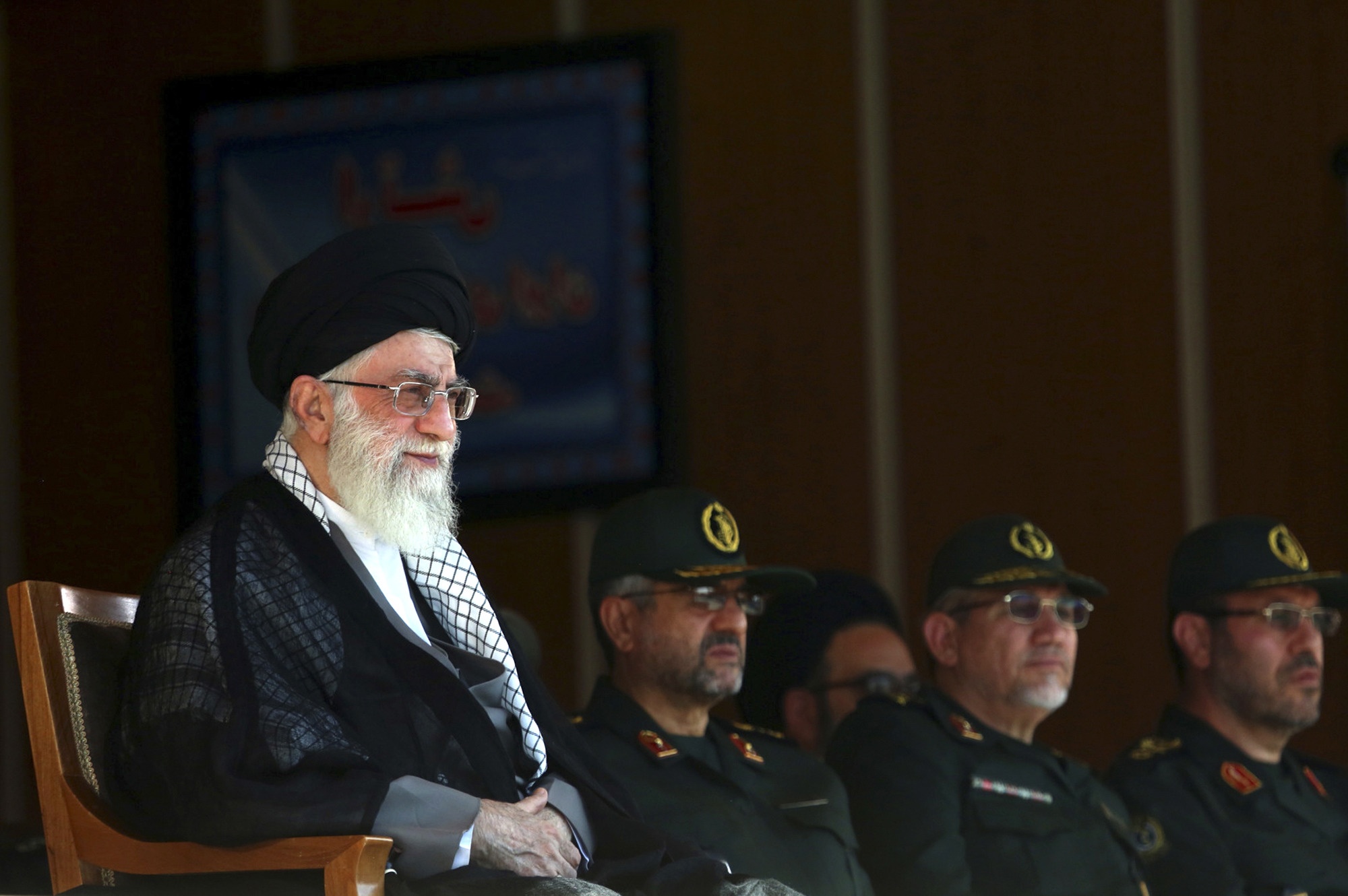
ATa meeting of the Strategic Council of the Islamic Republic of Iran on Saturday 10/8/17 entitled “analyzing Trump’s behavior”, Major General Mohammad Ali Jafari of the Iranian Revolutionary Guard addressed recent developments regarding the “Iran Nuclear Deal” (aka Joint Comprehensive Plan of Action or JCPOA).
He stated, “If the Americans think that they will ultimately be negotiating such issues with Iran, they have chosen a completely wrong path. Iran intends to solve these issues off the negotiating table. There is absolutely no room for negotiation.”
Jafari also stated that if the United States is bent on implementing new sanctions against the Iranian Revolutionary Guard, they have to better move their regional bases at least a 2000 kilometer radius away from Iran’s missiles range. He also threatened that if the US government lists the Iranian Revolutionary Guard Corps as a “terrorist” organization, the Revolutionary Guards would “target the US military throughout the world, especially in the Middle East, considering it as same as ISIS.”
Jafari also said, in an assessment of the new US sanctions, “These sanctions finalize the experience of JCPOA for us, and that experience is that America uses dialogue as a tool of pressure and hostility, not interaction or problem-solving.” Jafari finished by emphasizing that “The United States’ conduct with Iran has proved that we cannot regulate our foreign relations solely on the basis of JCPOA.” He continued, “Americans know that Iran will take advantage of the stupidity of the Trump administration concerning their revoking of JCPOA. We will just use that as an opportunity to advance our conventional missile programs and defense programs.”
In a related context, Iranian Foreign Ministry spokesman Bahram Qasimi denied claims made in a Reuters report that Tehran was ready to negotiate regarding its ballistic missile program and reiterated that his country’s controversial missile systems were not negotiable.
Qasimi stated “Iran has repeatedly stressed in all bilateral diplomatic meetings that its missile defense program is non-negotiable, and that it does not conflict with UN Security Council Resolution 2231,” according to a report in the Iranian news agency Mehr on Saturday.
A report by Reuters on Friday quoted well-informed Iranian and Western officials as saying that Iran had hinted to the six world powers that it might be ready to talk about its arsenal of ballistic missiles in an effort to ease tensions surrounding its controversial program.
A senior Iranian source, speaking on condition of anonymity, told Reuters that Iran had informed major powers on the sidelines of the UN General Assembly last month that the missile program could actually be discussed “to ease concerns.”
The issue of Iranian missiles is a new crisis to Iran’s relationship with Western countries, as the United States is now stressing the need to stop Iran’s missile testing due to considering them a threat to security and peace worldwide.
White House spokeswoman Sandra Sanders said that US President Donald H. Trump, in the context of defining Washington’s new strategy toward Iran, would look at all of Tehran’s behavior – including their missile tests, their support for terrorism, and their cyber-attacks.
Sanders added that President Trump would consider Iran’s history of conduct, and not just one specific issue – clearly referring to JCPOA which Trump is demanding be reconsidered or canceled. “The nuclear deal is not the only bad behavior of Iran, but its missile tests, instability in the region, its support for terrorism, cyber-attacks, and its possession of an illegal nuclear program, can also be seen as part of Tehran’s bad behavior,” she said. Sanders stated that a government team was trying to present a concrete plan in the coming days that would include a general response to all these issues.
Senior White House officials have revealed in the past week that Trump seemed to be pursuing a path that could lead the United States to abandon the deal. Trump sees JCPOA as giving Iran concessions that help to expand its influence in the Middle East and destabilize the security in Arab countries such as Syria, Iraq, and Yemen.
US President Donald Trump will announce his country’s policy on the controversial 2015 nuclear deal shortly, White House officials have revealed. The White House said on Thursday that Trump may conclude on October 12 that “the nuclear agreement with Iran does not meet US interests,” which would mean Washington’s withdrawal from the agreement brokered in the period of his predecessor, Barack Obama.


